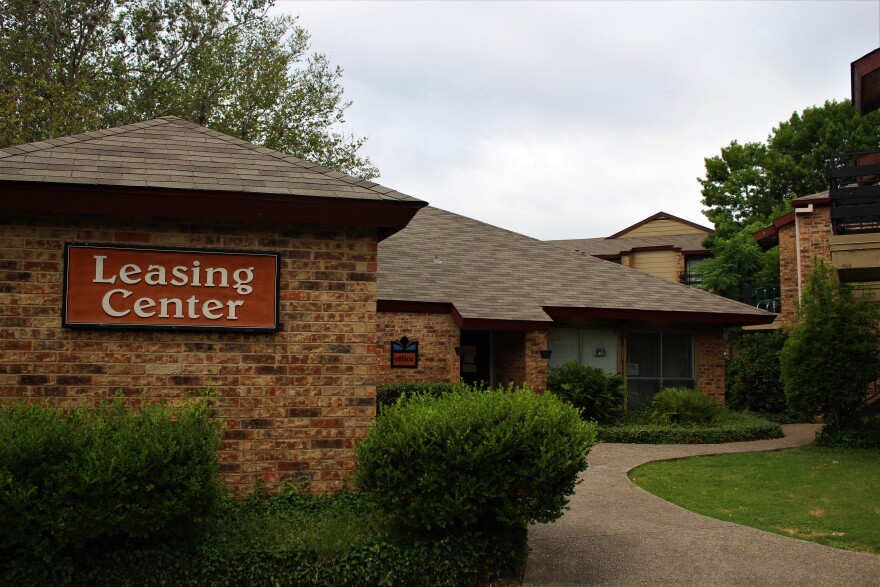Renters nationwide are seeing eviction relief until the end of the year after the Centers for Disease Control and Prevention announced a moratorium Tuesday. But San Antonio experts fear that holes in the eviction moratorium will leave people in massive debt with no way to pay, while others in need will go overlooked.
“People will be facing these massive debts in terms of back-owed rent, fines and fees and there’s no plan whatsoever to support people through it,” Sofia Lopez said. “And so I keep hearing the expression, ‘kicking the can down the road,’ again and again. Ultimately, we don't have a plan for once that December 31 date gets here.”
Lopez is a senior researcher for the Action Center on Race and the Economy, a national organization that provides support to local groups invested in racial, economic, environmental, and education justice.
According to the CDC, the eviction moratorium will go into effect Friday. It’s intended to lessen the spread of COVID-19, which has killed over 174,000 people so far in the United States.
To qualify for the moratorium, renters must sign a declaration form that states the following:
- The renter has tried their best to get all available government assistance for rent or housing.
- They earn no more than $99,000, or $198,000 if filing joint taxes in 2020.
- They did not file any income with the IRS in 2019.
- They are unable to pay their rent due to “substantial loss of household income, loss of compensable hours of work or wages, a lay-off, or extraordinary out-of-pocket medical expenses.”
The renter will be homeless or forced to move into close quarters if they are evicted because they have no other housing options.
The moratorium does not protect renters who are being evicted for other reasons, such as lease violations unrelated to rent.
Bexar County officials have not yet decided how the moratorium will go into effect locally.
Eric Maldonado, assistant public information officer for the county, said officials are still waiting to hear from the Texas Supreme Court and the Office of Court Administration on how the moratorium will be applied in Texas.
Celia Valles, a community organizer with the Texas Organizing Project, said she receives about two or three calls asking for help navigating evictions every week. On Thursday, she received two calls before lunch. Neither of the callers had heard of the moratorium.
“I think that's indicative of how important it's going to be for this information to be quickly disseminated, so that people know what protections they have. Because I think that shows that, even though this was announced and it is a big deal, the news hasn't necessarily spread to everybody that would be protected by this,” she said. “I think there's going to be a big push for correct information to be widespread and accessible to everybody — multiple languages available, not just on the internet but also physically as well.”
Lopez also raised concerns about how landlords will, in short, be held honest about why they are evicting people.
“I think, for me, one of the biggest concerns is that there is all kinds of potential for harassment or evictions through other means that serve the same purpose,” she said.
Ultimately, judges will determine whether somebody can be legally evicted or not.
But Valles says there are other ways landlords can essentially pressure people out of their homes.
“Because, in San Antonio especially, there is an issue where maybe a renter doesn't receive a formal eviction notice but they receive so much pressure from their landlord that they choose to leave rather than go through the eviction process or they're made to feel so unsafe or unwelcome in their apartments or whatever they're renting that they choose to leave rather than to stay,” she said.
Bexar County offers programs specifically to help people in need of housing and monetary assistance as a result of the pandemic. They’ve allocated millions of dollars to help people with temporary housing assistance, relocation services, and emergency grants to assist households with miscellaneous expenses.
But Lopez said she’s spoken to people who’ve waited months for the assistance to be approved and she believes it’s unacceptable for people to spend that time wondering if they’ll have a place to live or if they’ll be sleeping on the streets.
The most ideal situation, she said, is for rent and mortgage payments to be outright canceled.
“To me, in the housing sphere, there's a divide between things like rental assistance and cancellation of rent and mortgages. And I think, at this point, we need to very critically question which of those is going to be the more effective approach,” Lopez said. “And I think that canceling rents and canceling mortgages is something that would leave people on a much more stable footing.”
She said she knows the city doesn’t have the authority to cancel rent and mortgages, but she said this moratorium should act as a first step that leads to people calling support from every level of government to do so.
Jolene Almendarez can be reached at jolenealmendarez@gmail.com.
TPR was founded by and is supported by our community. If you value our commitment to the highest standards of responsible journalism and are able to do so, please consider making your gift of support today.




